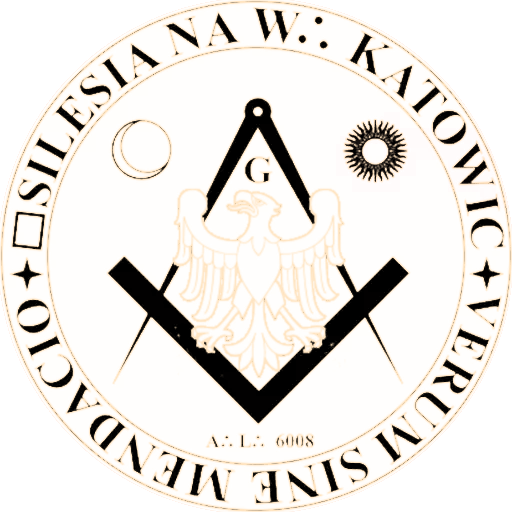Questions and Answers about Freemasonry
First and foremost, the interested individual should meet the conditions mentioned in the WLNP Constitution (hyperlink). Each candidate should have two supporters of his application, i.e., Brothers who, after getting to know the applicant, are willing to vouch for them. If you don’t know any active Freemasons, you can send your resume along with a letter of motivation explaining the reasons why you want to join Freemasonry. Based on this, two Brothers will contact you first and then vouch for you in the Lodge. Ultimately, whether the applicant will be accepted is decided by the Lodge assembly.
A person can become a Freemason only after reaching the age of 25. An exception is made for the sons of Master Masons, who can be initiated after reaching the age of 21.
No. Freemasonry requires its members to respect the beliefs and faith of others. It does not impose any religious beliefs on its Brothers nor does it prohibit any. It only requires that they be sincere and not contradict its fundamental principles.
No, it is not necessary to be wealthy to join Freemasonry. However, being a member of Freemasonry involves paying membership dues. The amount of these dues is generally in line with fees found in other membership-based organizations.
In the Lodge, nothing happens ‘here and now.’ The introducing Brothers also need some time to get to know the candidate properly. That’s why the candidacy process is relatively long. From the moment of application to initiation, it typically takes an average of 6 to 12 months.
No, Freemasonry is a non-denominational community and within its ranks, it prohibits any discussions or debates on religious topics. However, it does expect candidates to believe in a higher power and respects all religious beliefs.
The term ‘Lodge’ can refer to both the meeting place of Freemasons and the basic organizational unit of Freemasonry. Lodges are established in specific cities and are assigned a unique number by their governing body (in our case, it is The National Grand Lodge of Poland). The list of Lodges affiliated with the GNLP can be found here.
Yes, it is possible to belong to more than one Lodge. However, candidates are allowed to apply for membership in only one Lodge.
The exact proceedings of a lodge meeting are confidential. During the meeting, there is a kind of enactment of a secular ritual with assigned roles, and presentations are given on various topics, including history and symbolism of the movement, philosophical matters, and literature.
Freemasons are absolutely forbidden from disclosing the proceedings of meetings and the identities of other Brothers unless they have obtained explicit permission to do so.
External link https://wlnp.pl/site/konstytucja-wlnp/
- Freemasonry is a fraternal initiatory association, founded on the belief in God, the Great Architect of the Universe.
- Freemasonry is based on the Ancient Charges and Landmarks and respects other traditions proper to the Order, especially those concerning the regularity of its Jurisdiction.
- Freemasonry is an Order to which only free, independent, and well-mannered individuals can belong, committing themselves to the ideals of Peace, Love, and Brotherhood.
- Freemasonry aims at the moral improvement of its members, and through them, the improvement of all Humanity.
- Freemasonry requires its members to meticulously practice rituals and symbols, and spiritual and initiatory means unique to it, leading to the attainment of Knowledge and Truth.
- Freemasonry mandates its members to respect the beliefs and faith of others. Within its ranks, it forbids any political or religious discussions or polemics. This allows it to remain a constant and secure Center of the Fraternal Union, where understanding, tolerance, and fruitful harmony among people prevail, difficult to achieve under other conditions.
- Freemasons gather beyond the reach of the profane world, in lodges where the three Great Lights of the Order, the Volume of Sacred Law, the Square, and the Compasses, are always present and visible – to work ritually, with dignity, fervor, and in accordance with the rules prescribed in the Constitution and Regulations of the Obedience.
- Freemasons take their oath on the Volume of Sacred Law; therefore, this oath possesses a lofty, sacred, and unquestionable character in its endurance.
- Freemasons can admit to their lodges only adults, who are righteous and discreet, people of honor, who highly value their title of Brother Freemason, capable of assessing the potential of others and the infinite forces of Eternity.
- Freemasons cultivate in their Lodges the love of country, respect for law, and regard for constitutional authority. They recognize and honor work in all its forms as the highest duty of a human being.
- Freemasons provide others with an active example through their proper conduct, thereby radiating the Order’s influence outwardly. They do this while maintaining Masonic secrecy.
- Freemasons are honor-bound to provide mutual help and fraternal defense, even at the risk of their own lives. They cultivate the art of maintaining calm and balance in all situations.
The above principles have been adopted by the main, so-called regular stream of Freemasonry, deriving from the tradition of the oldest Masonic organization in the world – the Grand Lodge of England. In 1991, they were recognized by the revived Grand National Lodge of Poland. The Ancient Charges mentioned in Article 2 are a canon of regulations and customs established in the English Constitutions of the free masons’ association from 1723 and 1738. The Landmarks, on the other hand, refer to national or local Masonic traditions accepted in regular Masonry.
